The transition to a circular economy represents enormous opportunities, particularly for first-mover organizations leading the way. CELC Network Partners are a growing number of corporate, non-profit, and academic partners who are already making critical investments, embracing sustainability and circularity as core elements of their business and organizational strategies.
Partner With Us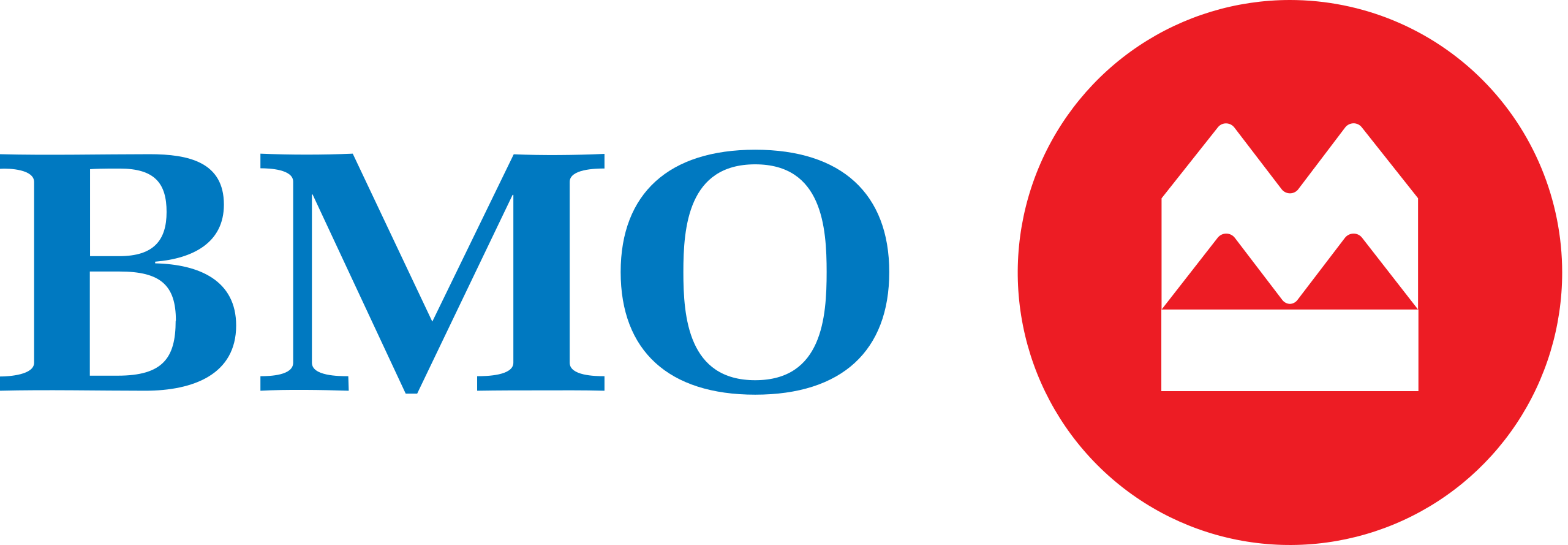

The Bank of Montreal (BMO) is a leading financial institution based in Canada, offering a wide range of banking and financial services to individuals, businesses, and institutions. BMO is committed to sustainability and ESG principles, integrating them into its operations, lending practices, and investment decisions. Through initiatives like community investment programs, renewable energy financing, and responsible lending policies, BMO actively contributes to environmental conservation, social development, and governance best practices.


Since 1964, British Columbia Institute of Technology (BCIT) has been training the experts, innovators, and professionals who shape our economy – across BC and around the world, with five campuses and over 50,000 students enrolled each year. Through its unique applied education model, students gain the hands-on technical skills, real-world experience, and problem-solving ability needed to embrace complexity and lead innovation in a rapidly changing workforce – including for the emerging circular economy.


The Canada Plastics Pact (CPP) is a unique multi-stakeholder, industry-led, cross-value chain collaboration platform that unites businesses, governments and NGOs together for action towards a circular economy for plastics in Canada.


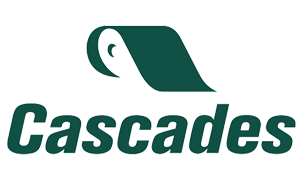

Nearly 60 years ago, Cascades became a pioneer in the circular economy by making products from recycled materials. This logic continues to underpin its business model today – Cascades supports the circular economy by offering eco-designed products that are recyclable or compostable for which inputs are sourced responsibly.


CDETNO is a non-profit organization that promotes, stimulates, and supports the economic development and employability of Francophones and Francophiles of Northwest Territories. Together with their partners, CDETNO develops services and tools to support all Northerners. CDETNO recognizes that minimizing economic leakage creates greater diversity and prosperity. Thus, it is leading the pilot of a new network of NWT organizations, called “Circular Economy North”, to increase collaboration among local businesses and accelerate circular economy activities.
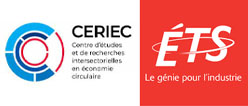

Based at the École de technologie supérieure (ÉTS), CERIEC’s mission is to contribute to the shaping and deployment of circular economy through a program of cutting-edge interdisciplinary scientific research, as well as through training, dialogue, valorization, and transfer initiatives designed to maximize benefits for economic actors, governments and civil society..
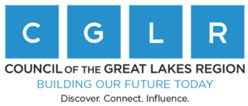

The Council of the Great Lakes Region provides a binational, multi-sector forum for exchange and collaboration on the region’s key risks and opportunities. CGLR’s Circular Great Lakes initiative aims to keep critical materials cycling through the regional economy. The Ontario Materials Marketplace Program gives manufacturers practical ways to improve supply chain resilience and generate value through the reuse and recycling of materials.


CIBC is making investments to create positive change for their team, clients, communities, and our planet, and contributing to a more secure, equitable and sustainable future where everyone’s ambitions are made real. CIBC’s environmental, social and governance commitments are focused on accelerating climate action, creating access to opportunities, and building integrity and trust. This includes CIBC’s goal to achieve net-zero greenhouse gas (GHG) emissions from their operational and financing activities by 2050.


Circular Regions is a Norwegian non-profit organization collaborating internationally, developing a data-driven suite of tools to help mission-oriented organizations in the Circular Economy and related arenas to catalogue, contextualize and connect their data and resources to bridge them to the wider community for cross-sector, multi-stakeholder ecosystem transformation.


Coast Waste Management Association is a highly regarded non-profit membership association serving the solid waste industry in coastal British Columbia and beyond. With over 160 organizations as members comprising an active network of over 780 individuals, we connect at all levels of an organization and across the industry. For over 25 years, CWMA has provided forums for growing networks, connecting, knowledge sharing, and supporting our members to help cultivate best practices.


The mission of CSA Group’s Standard Development organization is to enhance the lives of Canadians through the advancement of standards in the public and private sectors. CSA Group is a leader in standards research, development, education, and advocacy. The technical and management standards developed with the organization’s 10,000 members improve safety, health, the environment, and economic efficiency in Canada and beyond.


Desjardins Group is the largest cooperative financial group in North America and the fifth largest cooperative financial group in the world, with assets of $404 billion. As a socio-economic leader, Desjardins has always had a ringside seat when it comes to helping entrepreneurs adapt to new realities. Desjardins is committed to doing more to guide entrepreneurs as they make the critical transition to circular business models.
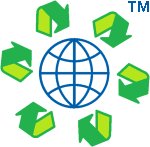

elerGreen Industry is a cleantech startup to recover valuable polymers, metals and chemicals from chemical waste and renewable electricity, at significant cost and environmental footprint reduction. The key differentiator of elerGreen core technology lies in its patented unique reactor design..


The Ellen MacArthur Foundation develops and promotes the idea of a circular economy. The Ellen MacArthur Foundation’s mission is to accelerate the transition to a circular economy by working with and inspiring businesses, academia, policymakers, and institutions to mobilize systems solutions at scale, globally.
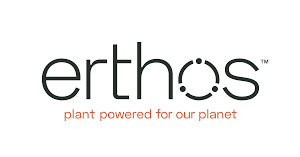

erthos is on a mission to tackle plastic pollution by creating plant-powered alternatives to traditional plastics. Single-use plastics made with erthos solutions are compostable, and compatible with existing plastic technology, advancing the industry towards circularity and a movement for a better planet with better materials.
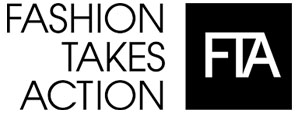

Fashion Takes Action (FTA) pioneers sustainability in Canada’s fashion industry. As a non-profit organization, FTA collaborates with industry stakeholders and consumers to promote responsible practices. Through education, advocacy, and innovation, FTA aims to transform behaviors, fostering positive social and environmental impacts. Their governance framework ensures accountability, guiding the fashion industry towards a more sustainable and ethical future.


The GI Hub is a not-for-profit organization, formed by the G20, that advances the delivery of sustainable, resilient, and inclusive infrastructure. We create data-driven resources that help decision-makers, policymakers, and practitioners create positive impacts through infrastructure. In 2021 the G20 welcomed our circular economy roadmap, which provides high-level guidance on transitioning infrastructure towards a circular economy. We are now continuing this work by defining innovative circular economy practices under the roadmap’s transition pathways.
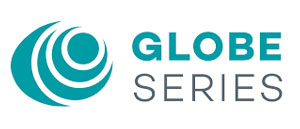

GLOBE Series delivers in-person, hybrid and virtual events and experiences that drive returns for our economy, our society and our planet. GLOBE brings together the innovators and changemakers who are accelerating the clean economy, and is a proud partner of the CE Solutions Series.


GroBikes is a subscription service for kids bicycles. GroBikes’ circular-economy business model makes it easier, more affordable, and more sustainable for parents to get their children riding lightweight, fun bikes that always fit, reducing carbon emissions and physical waste today, while cultivating future generations of cycling enthusiasts for tomorrow.


GS1 Canada is a member organization (MO) of GS1 Global. As a trusted, strategic industry partner, GS1 Canada works to identify and address common business issues to enable best-in-class supply chain, enabling organizations of all sizes to meet Canadian trading partner and regulatory requirements. GS1 Canada is a global leader in data quality, providing a primary source of truth for the highest quality, perpetually cleansed and updated bilingual product content for Canadian industry.


Sustainable Impact is at the heart of HP Canada’s business strategy, prioritizing the areas where HP’s technology, talent, and platform can make the most positive impact. Above all, it supports a culture that integrates purpose throughout our business. We aim to decouple growth from emissions and resource consumption, drive innovation, and transform our business models for a more circular economy. By shifting toward circular design, we are working to increase value for customers while reducing environmental impacts.


The International Institute for Sustainable Development (IISD) is an award-winning independent think-tank working to fulfill a bold commitment: to create a world where people and the planet thrive.


IKEA is committed to creating a better everyday life through being ‘People and Planet Positive’. By 2030, IKEA aims to be a circular business built on clean, renewable energy and regenerative resources, decoupling material use from growth.


The Ivey Business School’s purpose is to inspire leaders for a sustainable and prosperous world. The Ivey Centre for Building Sustainable Value (BSV) advances the school’s purpose through impactful research, teaching, and outreach. To scale the circular economy in Canada, the BSV Centre is systematically investigating the opportunities and enablers of repurposing waste – especially in the agri-food sector.


As a part of the BSV Centre, the Network for Business Sustainability (NBS) advances the circular economy by engaging and mobilizing international communities of business leaders, scholars and policy makers. NBS works with these stakeholders to create high-quality articles, case studies, podcasts, and livestreams that are chiefly organized in a knowledge hub on our website.


Lambton College is a nationally recognized research college with six established research centres focused on collaborative research in biotechnology, materials, information technology, manufacturing, energy, and water. In 2022, Lambton established the Lambton Circular Economy Innovation Platform (LCEIP) to enhance existing research centres and groups by increasing access to resources and capacity to address applied research priorities in industry, health, and not-for-profit community-based organizations focuses on the Circular Economy.


Light House is a non-profit organization whose work on policy, building projects, research, and resource development is helping to transform design and construction – moving the industry towards circularity and leading the creation of a regenerative built environment.
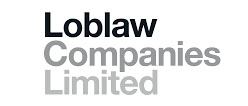

Loblaw Companies Limited (LCL) are committed to reducing their impact on the environment by conducting business in an environmentally responsible manner. LCL is committed to complying with all laws and regulations applicable to their operations, and to continually improving their environmental management systems.
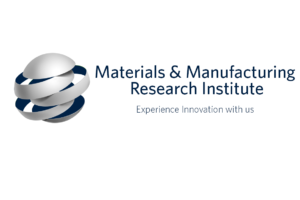

The Materials and Manufacturing Research Institute (MMRI) is a multi-disciplinary, interdepartmental research hub at the University of British Columbia (UBC) fostering collaboration between local, national and international R&D sectors to create new opportunities for multidisciplinary research in related emerging areas through shared knowledge and network-based funding. MMRI works extensively with partners in the circular economy space, including providing seed funding for feasibility studies to SMEs via NRC-IRAP, knowledge dissemination activities, networking and partnership building, among other value-adding initiatives.


The W Booth School of Engineering Practice and Technology within McMaster University’s Faculty of Engineering is dedicated to student-centred experiential learning through flexible, adaptable and innovative programs and teaching using state of the art resources and facilities. Our learning environment emphasizes hands-on education and transferable skills to produce engaged graduates ready to serve a diverse community and societal needs. In 2019, the W Booth School launched a professional certificate course in Circular Economy and is expanding on this with a graduate level course in the Winter of 2023.
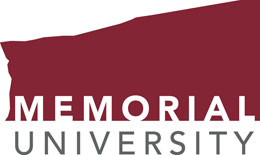

Memorial University of Newfoundland is a multi-campus, multidisciplinary university dedicated to creativity, innovation and excellence in teaching and learning, research, scholarship and public engagement. Memorial’s inclusive community is committed to fostering and promoting ingenuity while contributing knowledge and expertise locally, nationally and internationally.
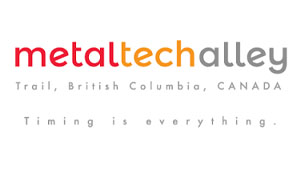

Based in Trail, British Columbia, Metal Tech Alley is an association of dedicated and ambitious professionals that are initiating a regional movement towards a circular economy system for long-term stability and environmental sustainability.
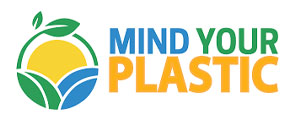

Mind Your Plastic is a registered Canadian charity dedicated to eliminating plastic pollution in Canada. Through our work advocating with municipal government for policies that better regulate materials used in our economy, working alongside Canadian businesses to give consumers better plastic-free choices, and our direct action programming, like our Circular Economy Ambassador Program, we are moving towards a plastic pollution-free future for #PlasticFreeLandAndSeas.


Mosa is a circular-economy based business that upcycles discarded glass bottles into home decor products through the novel microfactory technology. Mosa partners with bars, restaurants and individuals to rescued glass bottles from ending up in landfills and upcycle them into candles, glassware and vases for corporate and individual gifting purposes. Along with being highly sustainable, Mosa ensures that all our products are also innovative and of high quality.


At National Bank, we exist to have a POSITIVE IMPACT in people’s lives, by building long-term relationships with our clients, employees and communities. Supporting sustainable development is part of our mission and we believe the business community has a key role to play in building the world of tomorrow. We’re powered by the energy, ideas and passion of our many change partners, and we appreciate the opportunity to make a difference, including in finding ways to support the transition to a circular economy.
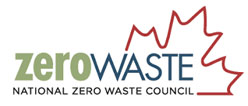

The National Zero Waste Council (NZWC) is focused on advancing the circular economy and waste prevention agenda that maximizes economic opportunities for the benefit of all Canadians.
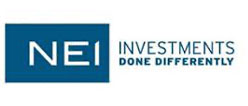

NEI Investments is Canada’s leading provider of responsible investment (RI) solutions. NEI has built Canada’s most diversified lineup of RI solutions — top performing, actively managed funds advised by the world’s leading institutional money managers and overseen by NEI’s proprietary Investment Management, Asset Allocation, and Environmental, Social and Governance (ESG) teams.


The Nulla Project is Victoria, BC’s first reusable cup and container program. We offer simple reusable cup and container options and aim at improving the to-go culture by eliminating single-use cups and takeout containers from the landfill and the ocean.


Oligomaster is an Innovation-As-A-Service (IaaS) company leading the charge in disrupting the plastics and coating industry with sustainable solutions. Their innovative practices focus on the research and development of eco-conscious materials and processes, aiming to minimize waste and maximize resource efficiency. Through cutting-edge advancements and a commitment to sustainable principles, Oligomaster is reshaping the landscape of sustainable solutions with industry and academics alike. Recycling and developing products more conscious for the environment, Oligomaster is committed to help foster a greener and more responsible future for industries worldwide and providing solutions to achieve the goals of a circular economy.


Initiated in 2008 by the Toronto Pearson, and Toronto and Region Conservation Authority (TRCA), Partners in Project (PPG) is a member-based program partnering with businesses and our municipalities to collectively advance social and environmental sustainability across the Greater Toronto Area. PPG’s Circular Economy Leaders Consortium, in partnership with TELUS, aims to support businesses in reaching their facility waste reduction and diversion goals and advancing circularity and climate action across the business community.


Passive House Canada is a national non-profit professional association that advocates for and educates on the Passive House high-performance building standard that sharply reduces greenhouse gas emissions and provides resilient structures that can withstand extreme weather related to climate change. Their mission is to make the International Passive House standard of building performance understood, achievable, and adopted by government, industry, professionals, and the public across Canada through education, advocacy, events, and building projects.
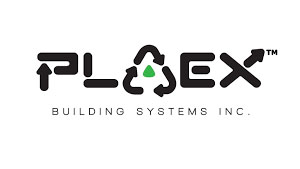

PLAEX Building Systems Inc. is revolutionizing the building industry with innovative products made from over 90% recycled materials. PLAEX’s fully interlocking bricks are more durable than traditional building materials, and at the end of use can either be dissembled, or recycled back into new PLAEX products, creating a truly circular economy.


Poptronic allows you to rent the latest in tech, without breaking the bank. Poptronic provides affordable, consumer tech rentals across Canada, while promoting sustainability and circularity through re-use.


Project Zero is an impactful initiative focused on fostering innovation in the circular economy and implementing circular concepts in British Columbia. As changemakers, we host an annual incubator program to support new start-ups and established businesses looking to grow within the circular economy. As connectors, we facilitate conversations between industry, government, and academia to help bridge the gap from the linear to the circular economy.


The RCA’s mission is to promote, facilitate and advocate for a Circular Economy in Alberta through waste reduction and resource conservation. Through a consultative approach and support of the RCA Committees and partners (i.e., government, industry, stewardship organizations and other associations) and additional stakeholders, the RCA will pursue protection of the environment through resource conservation following the 3Rs hierarchy.


Reimagine Agriculture envisions an agricultural system that comprehensively meets the needs of present and future generations. We inspire action through connecting, empowering, and educating people to build a healthier food system in Canada and beyond.


The City of Richmond is committed to environmental sustainability and is advancing towards a circular economy with its Richmond Circular City Strategy. This strategy, in line with the Community Energy and Emission Plan, aims to achieve a 100% circular economy by 2050. The City of Richmond’s vision for a circular economy is to maximize the value of resources, by design, through responsible consumption, minimizing waste and reimagining how resources flow in a sustainable, equitable, low-carbon economy. Richmond’s circular approach integrates economic growth with sustainable practices, emphasizing the regeneration of natural capital, efficient resource use, and renewable processes.
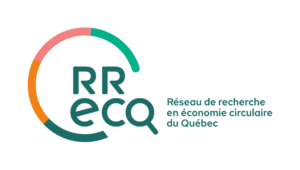

The Québec Circular Economy Research Network (RRECQ) aims to combine research and training in circular economy with the needs of society. The RRECQ stands at the interface between research and society to bring concerted, concrete and sustainable solutions to organizations, communities and individuals through its research, training and transfer activities.


Save on Foods is a major grocery retailer in Western Canada, with a decades-long commitment to addressing climate change. Their sustainability goals include: 1) eliminating food waste by 2022; 2) growing contributions to the circular economy; and 3) building stronger climate change response systems.


Scotiabank is a leading bank in Canada and a leading financial services provider in the Americas. We are guided by our purpose: for every future. A better tomorrow – where our customers, employees and communities all thrive – benefits everyone, including our Bank. Our diversified geographic footprint, varied business lines, and large customer and employee base give us a responsibility and an opportunity: we can help address important social, environmental, and economic challenges while positioning our Bank for success.
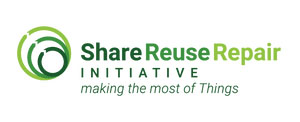

The Share Reuse Repair Initiative engages business, community and government to advance a circular economy that is a meaningful waste and climate solution, enables all people to “live circular” and fosters resilient local economies. We are uniquely focused on creating both a greater supply of circular goods and services while cultivating the cultural and consumer demand for that supply.
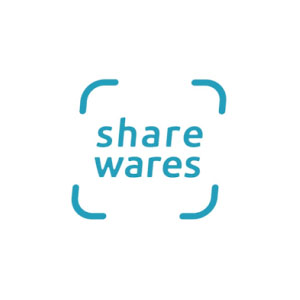

ShareWares is an impact-driven business based in Vancouver that supplies and sanitizes reusable containers for events, cafés, restaurants, and other food and beverage businesses. ShareWares offers a suite of complementary and a la carte products and services, including an advanced washing service for reusable containers, a supporting app for businesses and customers to easily adopt reusables, and product development consulting to assist businesses in transitioning to reusable products and packaging.


Smart Prosperity Institute (SPI) is a national research network and policy think-tank based at the University of Ottawa. SPI delivers world-class research and works with public and private partners – all to advance practical policies and market solutions for a stronger, cleaner economy.


Sparx Publishing Group is a purpose-driven full-stack marketing agency on a mission to make the world better by raising awareness, sparking meaningful conversations, and getting folks on board with impact-driven initiatives. By helping organizations in the sustainability space tell their stories we’re spotlighting circular economy solutions and writing a new ending for waste.
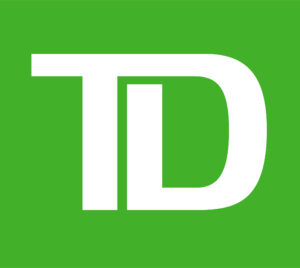

Embedded in TD’s commitment to support the transition to a low carbon economy is the perspective that another transition must occur – the transition from a linear economy to the circular economy. TD believes there is a role for financial institutions to play in this journey and looks forward to working with Circular Economy Leadership Canada.
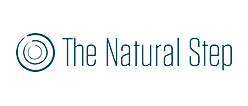

The Natural Step Canada is a national charity with over 25 years of experience in advancing science, innovation and strategic leadership aimed at fostering a strong and inclusive economy that thrives within nature’s limits. TNS, the parent organization behind Circular Economy Leadership Canada, engages thought leaders from industry, government, academia and civil society through labs, leadership coalitions, and expert networks.
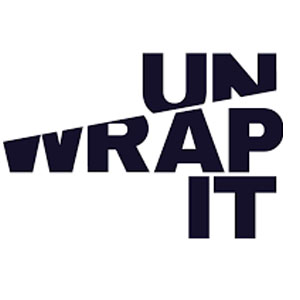

Unwrapit is a relationship-building platform for forward-thinking people. We enable businesses and event professionals to give low/no waste, sustainably-minded gifts at any scale to gift recipients who unwrap and claim their choice of a gift within our customizable virtual platform. We have designed the waste and pollution out of corporate gifting by giving businesses the opportunity to send non-physical gifts in a personalized way without requiring a major shift in business operations.


Walmart Canada has three goals for enhancing the sustainability of operations and global value chains: to create zero waste, operate with 100% renewable energy, and sell products that sustain resources and the environment.
We pledge to support Circular Economy Leadership Canada (CELC) in its efforts to build the capacity and empower the collaboration to maximize the value in our value chains. We collectively commit to supporting the U.N. Sustainable Development Goal (SDG) 12 on responsible consumption and production, and to work to eliminate waste, in all of its forms. Together, we can create more resilient and prosperous businesses and communities in Canada. Through collective action, we can create the knowledge, networks, and opportunities that will accelerate circular economy innovation across Canada’s economy.
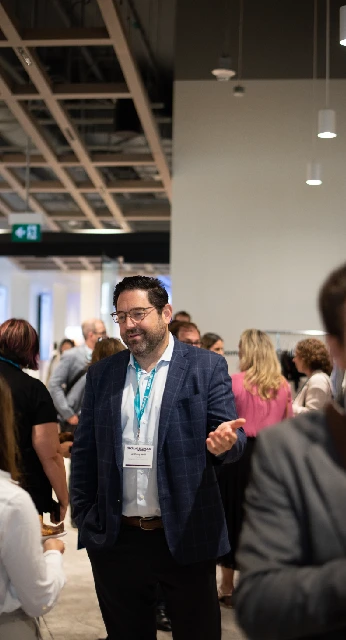
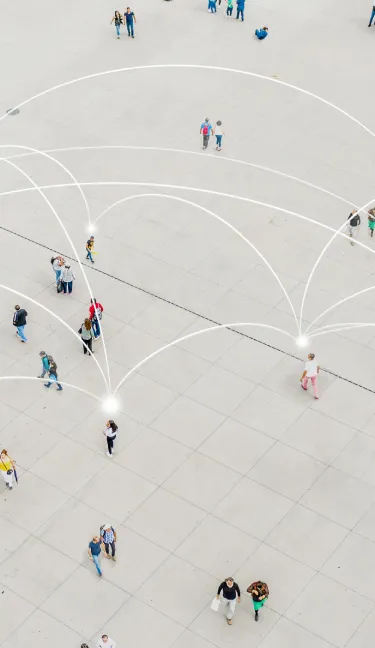
Access to the newest information and strategic insights through CELC’s monthly newsletters, events, and various Partner updates
Opportunities to contribute to the research and direction of the Circular Economy Work Streams
Opportunities to be involved in projects that address challenges in a pre-competitive space
Access to the broader CELC Partner and innovator network, including other strategic initiatives and industry-level challenges
Premier access to special networking and industry events
Branding and logo recognition (website, digital, and print materials)
Exclusive CELC Partner highlights in CELC monthly newsletters and across CELC's social media channels
Curated match-making with like-minded professionals in our extended network
Access to CELC's online community platform
Additional customized benefits in line with the key objectives of your organization
Join our mailing list